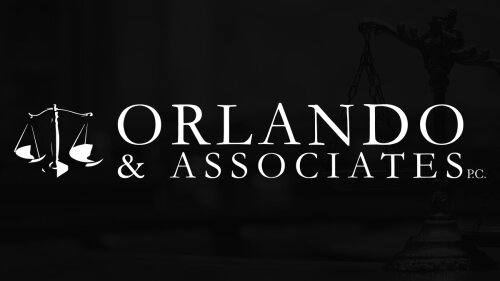Best Restructuring & Insolvency Lawyers in Virginia
Share your needs with us, get contacted by law firms.
Free. Takes 2 min.
Or refine your search by selecting a city:
List of the best lawyers in Virginia, United States
About Restructuring & Insolvency Law in Virginia, United States
Restructuring and insolvency law in Virginia addresses the legal processes and requirements for individuals and businesses that are facing financial distress or are unable to meet their financial obligations. This field covers the legal frameworks for debt management, business reorganizations, bankruptcy filings, asset liquidation, creditor negotiations, and related court proceedings. While federal bankruptcy law provides the backbone of insolvency cases, Virginia maintains specific regulations and legal considerations that affect how such cases progress within the state.
Why You May Need a Lawyer
Seeking legal guidance in restructuring and insolvency situations is crucial because these matters often involve complex financial, legal, and procedural questions. Common scenarios where a lawyer's assistance is beneficial include:
- Filing for Chapter 7, Chapter 11, or Chapter 13 bankruptcy
- Negotiating with creditors to restructure outstanding debts
- Managing business dissolution or orderly wind-downs
- Defending against creditor lawsuits or collections actions
- Protecting assets through lawful exemptions and strategies
- Understanding the implications of insolvency on personal or business credit
- Ensuring compliance with state and federal regulations
An attorney can offer tailored solutions, ensure required documents are properly prepared, help safeguard your rights, and represent your interests throughout the process.
Local Laws Overview
Virginia follows federal bankruptcy laws under the United States Bankruptcy Code, but state-specific laws impact exemptions, creditor rights, and certain procedural issues. Key aspects of Virginia’s local laws relevant to restructuring and insolvency include:
- Virginia has a unique set of bankruptcy exemptions that determine which assets you may retain in bankruptcy, such as the "Homestead Exemption" for protecting some equity in your residence.
- The state requires mandatory credit counseling before filing for bankruptcy and debtor education after filing.
- Businesses and individuals in Virginia can file bankruptcy cases through the United States Bankruptcy Court for the Eastern or Western District of Virginia depending on their location.
- Virginia’s statutes of limitations on debt collection actions influence how long creditors have to pursue collections through the courts.
- Virginia law also impacts foreclosure procedures, garnishments, and the treatment of secured versus unsecured debts in bankruptcy proceedings.
An understanding of both federal and state legal frameworks is essential when navigating insolvency and restructuring in Virginia.
Frequently Asked Questions
What is the difference between restructuring and bankruptcy?
Restructuring typically involves negotiating new terms for your debts without court involvement, often allowing you to avoid bankruptcy. Bankruptcy is a formal legal process that involves court filings and may lead to debt discharge or structured repayment plans.
Which bankruptcy chapters are most commonly used in Virginia?
Individuals usually file under Chapter 7 or Chapter 13, with Chapter 7 focusing on liquidation and Chapter 13 on debt reorganization with a repayment plan. Businesses often file under Chapter 11 for reorganization.
What assets can I keep if I file for bankruptcy in Virginia?
Virginia law specifies exemption amounts for various assets, such as homes, vehicles, retirement accounts, and personal property. The Homestead Exemption allows protection of some equity in your primary residence, but the amount is limited.
How does business insolvency work in Virginia?
Business insolvency can lead to reorganization, asset sales, or complete liquidation. Processes vary depending on whether the business files under Chapter 7 or Chapter 11. Legal counsel can help assess the best path and manage creditor negotiations.
Can I stop foreclosure or garnishment by filing bankruptcy?
Filing for bankruptcy in Virginia triggers an automatic stay, which generally stops foreclosure processes and wage garnishments temporarily. The stay remains in effect until further court orders or dismissal of the bankruptcy case.
Do I have to go to court for bankruptcy in Virginia?
Most debtors are required to attend at least one meeting of creditors, also known as a 341 meeting. Court appearances are otherwise limited unless there are objections or disputes that require judicial review.
Will bankruptcy eliminate all of my debts?
Some debts are not dischargeable in bankruptcy, including certain taxes, student loans (except in rare cases), child support, and most alimony obligations. A lawyer can help determine which debts may be forgiven.
How long does bankruptcy remain on my credit report in Virginia?
A Chapter 7 bankruptcy can stay on your credit report for up to 10 years, while a Chapter 13 bankruptcy typically remains for 7 years from the date of filing.
Can creditors contact me after I file for bankruptcy?
Once you file for bankruptcy, an automatic stay goes into effect prohibiting most creditors from attempting to collect debts directly from you. Creditors that violate the stay may be subject to penalties.
Is debt settlement an alternative to bankruptcy?
Yes, debt settlement involves negotiating directly with creditors to reduce or restructure debt obligations without court intervention. However, it may negatively impact your credit and may not stop lawsuits or collections in all cases.
Additional Resources
If you need reliable information or assistance regarding restructuring and insolvency in Virginia, consider reaching out to the following resources:
- United States Bankruptcy Court for the Eastern and Western Districts of Virginia
- Virginia State Bar - Lawyer Referral Service
- Legal Aid Societies in Virginia
- Virginia Department of Professional and Occupational Regulation
- Consumer Financial Protection Bureau
- Local credit counseling agencies approved by the Department of Justice
Next Steps
If you are dealing with financial hardship or facing possible insolvency, your first step should be to consult with a qualified attorney who specializes in bankruptcy and restructuring law in Virginia. Prepare detailed documentation of your debts, assets, and income to support a comprehensive review. Consider scheduling a case evaluation to understand your options and develop a plan of action tailored to your situation. Acting sooner rather than later can protect your rights and increase the range of available solutions.
Lawzana helps you find the best lawyers and law firms in Virginia through a curated and pre-screened list of qualified legal professionals. Our platform offers rankings and detailed profiles of attorneys and law firms, allowing you to compare based on practice areas, including Restructuring & Insolvency, experience, and client feedback.
Each profile includes a description of the firm's areas of practice, client reviews, team members and partners, year of establishment, spoken languages, office locations, contact information, social media presence, and any published articles or resources. Most firms on our platform speak English and are experienced in both local and international legal matters.
Get a quote from top-rated law firms in Virginia, United States — quickly, securely, and without unnecessary hassle.
Disclaimer:
The information provided on this page is for general informational purposes only and does not constitute legal advice. While we strive to ensure the accuracy and relevance of the content, legal information may change over time, and interpretations of the law can vary. You should always consult with a qualified legal professional for advice specific to your situation.
We disclaim all liability for actions taken or not taken based on the content of this page. If you believe any information is incorrect or outdated, please contact us, and we will review and update it where appropriate.
Browse restructuring & insolvency law firms by city in Virginia
Refine your search by selecting a city.









